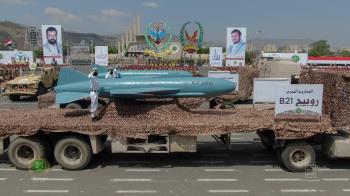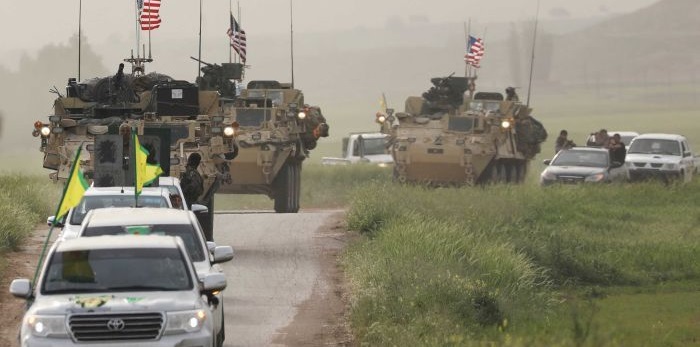Alwaght- Since the eruption of the Syrian crisis in 2011, the US dealt with the conflict using various tactics in a set of stages. Under Barack Obama, Washington embarked on the policy of supporting the so-called Free Syria Army (FSA) that did not last for a long time. Soon, disunity broke the FSA into pieces and its various units ended up fighting each other, to the US disappointment. The Americans then altered their policy of supporting the opponents of the Syrian President Bashar al-Assad and sought a new allied force amid unfolding new Syrian equations.
Since late 2013 through to early 2014, the Syrian Kurds resisted a fierce ISIS terrorist group’s push towards the predominantly Kurdish-inhabited cities, including Kobani. The Kurdish resistance apparently called the attention of the Americans who were desperately searching for allies on the ground. The Kurds were gathered under an umbrella group, the Democratic Union Party, which is the Syrian branch of the Turkish Kurdistan Workers’ Party (PKK). Since 2014, the US started backing of the Kurds under the cover of helping them fight ISIS. Americans on 15 March 2015 formed the Syrian Democratic Forces (SDF), a majorly Kurdish militant coalition which also contains a small number of Arab opposition fighters, in a bid to justify their support for the Kurds and soften the criticism, mainly coming from Turkey, over their relations with the Syrian Kurds.
The US armed and trained the force and helped it capture from ISIS fighters Raqqa, the northeastern city which in 2014 was announced by the terrorist group as the capital of the self-proclaimed caliphate. The SDF operations continued, leading to more seizures including part of the vital oil-rich Deir ez-Zor province in eastern Syria.
Despite that, the US now faces two challenges in the war-ravaged country: First, large tracts of the land seized by the Kurds are majorly Arab-inhabited and there are fears that the Arabs and Kurds will soon come to blows as the Arabs reject to live under the yoke of the Kurdish forces. Second, Turkey is highly concerned over Kurds’ weight gaining in the region and building their autonomy in Syria’s north, next to the Turkish borders. Ankara repeatedly blasted the American-Kurdish partnership and called on Washington to cut backing to the Kurds’ coalition.
The complicated challenges pushed the Americans to find a way to paint as legitimate the Kurdish rule over the three cantons of Afrin, Kobani, and Island. Since last week, the US officials circulated the word that they intend to form a 30,000-fighter Syrian force in the north. The new force, according to the Americans, will operate under the cover of the US-led military coalition in Syria and will include Kurds and Arabs.
"The coalition is working jointly with the [Syrian Democratic Forces] to establish and train the new Syrian Border Security Force (BSF)," Ryan Dillon, the spokesman to the coalition told Turkey's state-run Anadolu news agency.
"More Kurds will serve in the areas in northern Syria. More Arabs will serve in the areas along the Euphrates River Valley and along the border with Iraq to the south," Dillon was quoted as saying.
According to the spokesman, the training of part of the new forces has already begun, and afterwards they will be sent to serve in the areas under control of the SDF.
Reuters reported that “Public Affair Office” of the US-led coalition in Syria sent an email to the news agency, uncovering the details of the plan. The email read that half of the new force will incorporate the currently-serving SDF forces. The email further told Reuters that the process of recruitment was still underway.
The new force plan is seen by many analysts as a new US-designed plot to break Syria into pieces. The scheme wants to first keep Syria disunited as it does now and in the long run draw new borders inside the country. But here is a question: How successful will the Americans be in the implementation of the plan? The best answer to the question might come from a focus on the various parties’ reactions to the US announcement.
Reactions to the new force
The Turkish government was first on the list of the actors rebuking the US plan. Setting up the so-called Syrian Border Security Force appears to bear the signals that Washington wants to block the way of the new Turkish operation in northern Syria. Turkey said it was preparing an assault on the Kurds in Afrin canton. Ankara leaders have strongly responded to the US statement. Initially, Turkey summoned the American charge d’affaires in Ankara to protest the stated US move. Also reacting, President Recep Tayyip Erdogan of Turkey on Thursday attacked Washington for its purpose to form “terror army” and promised that he will not let it even see the light.
“A country we call an ally is insisting on forming a terror army on our borders,” Erdogan said in a speech in Ankara. “What can that terror army target but Turkey? Our mission is to strangle it before it’s even born,” he continued.
The Turkish leader asked the US to be transparent in its relations with the “terrorists”, referring to the Kurdish militias who are seen by Ankara as a danger to the Turkish territories.
Erdogan said preparations for the military assault on Afrin “are complete,” adding that an operation could start any moment to solve the canton’s challenge.
Shortly after Erdogan’s comments, the US Department of Defense issued a statement calling for de-escalation of tensions on the Syrian-Turkish borders. Pentagon stated that the international coalition will not launch an operation in Afrin in outskirts of Aleppo province which is held by the SDF. The US defense officials noted that Washington is closely cooperating with its NATO allies, including Turkey. The Department of Defense commented on the support provided to the allied People’s Protection Units (YPG) as the backbone of the SDF, saying that they are US partners and Washington needs them the so-called anti-ISIS war. The statement was read as signaling Washington’s concerns about the fresh Turkish postures. The analysts argue that once the Turkish operation against the Kurds in Afrin begins, the Americans are unable to take solid, serious stances against the move.
Russia was another party to respond to the US move. The country’s Foreign Minister Sergey Lavrov, in a press conference with the Russian media on 15 January, said “There is a fear that they are pursuing a policy to cut Syria into several pieces.”
"But again, there is nothing in the UN Security Council resolutions that have been pointing to that and neither is it in our previous agreements, so we are expecting some clarification from the US on that”, he told an annual press conference in Moscow to review the past year's diplomatic activities.
Commenting on the Syrian Kurds, the top Russian diplomat said that they are part of the Syrian nation and their interests should be respected. He referred to the expected Sochi conference of the Syrian opposition as the place where the Kurdish interests will be met.
“It is a problem that we have an overlapping of interests in Syria. We are doing our best to consider interests of the Syrian sides, and even the foreign sides who can intervene in Syria, and those who want their regional interests be saved,” he was cited as saying.
Aleksey Pushkov of the Russian Senate also blasted the US plan to form 30,000-fighter border force. In a Twitter post, he wrote: “The US attempt to create under its auspices in the north of Syria the so-called "security forces" of up to 30 thousand people - this is the way to prepare the actual dismemberment of the country. Officially, the US - for a single Syria. In fact - for the fragmented.”
The Syrian government also reacted to the decision. According to the official Syrian Arab News Agency (SANA), Syria’s Deputy Foreign Minister Faisal Mekdad on January 15 maintained that any foreign bases on the Syrian soil without the Syrian permission are unacceptable because this is the act of aggression and occupation, and Damascus will deal with them on this basis.
Doomed-to-fail plan
The complex of the regional and international opposition to Syrian Border Security Force plan gives every reason to conclude that the US design cannot succeed. There are a series of essential reasons for that: In the present conditions, all of the actors insist that Syria should remain united. Moreover, contrary to the initial years of the war, the central Syrian government is administratively strong now and can administer all parts of the country. Additionally, the Turkish government is firmly resolved to confront the Syrian Kurds. Ankara by no means will allow its archenemy PKK officially station in northern Syria. These factors, in the long run, will play the role of blockers of the US Syria split program.



























